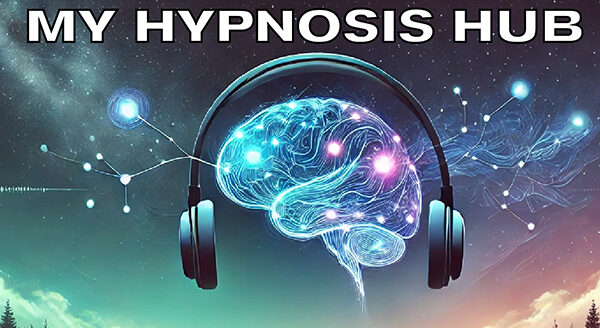Can Hypnosis Help with Low Libido? Exploring a Mind-Body Approach to Renewed Desire
Can hypnosis help with low libido and spark a healthier, more satisfying sex life for men who feel their desire has diminished? Low libido is more common than you might think—caused by anything from medical conditions and hormonal fluctuations to emotional stress and ingrained habits. While prescription medications or lifestyle changes are often the first lines of defense, they may only address the tip of the iceberg. The deeper emotional triggers and thought patterns fueling low sexual desire can remain unchallenged. Enter hypnosis, a mind-based strategy capable of reshaping subconscious beliefs about pleasure and performance. In this article, we’ll dive into the medical perspective on male low libido, discuss how hypnosis might help turn the tide, and suggest practical ways to integrate this approach into your self-care plan. If you’ve been feeling stuck, discouraged, or just plain fed up, read on—renewed intimacy might be closer than you think.
If you’re interested in a guided approach, you can explore this Male Libido Hypnosis Audio.
see our post – Can Hypnosis Increase Libido – Female
Table of Contents
- Understanding Low Libido from a Medical Standpoint
- Common Causes of Reduced Sexual Desire in Men
- Why Consider Hypnosis for Low Libido?
- How Hypnosis May Shift Mental and Emotional Barriers
- Practical Steps to Integrate Hypnosis into Your Libido Recovery
- Addressing Myths About Hypnosis and Men’s Sexual Desire
- Crafting a Holistic Plan: Hypnosis, Health, and Lifestyle Changes
- Conclusion: Reclaiming Your Sense of Intimacy
1. Understanding Low Libido from a Medical Standpoint
Hormonal and Physiological Factors
For men, sexual drive—often referred to as libido—is largely regulated by testosterone. When levels of this key hormone are lower than normal, the result may be a suppressed or inconsistent sex drive. Various factors can influence testosterone: aging, certain medical conditions (like hypogonadism), obesity, and prolonged stress. Additionally, thyroid issues, diabetes, or cardiovascular diseases can all hamper blood flow and energy, further impacting sexual desire.
Psychological Underpinnings
The American Urological Association notes that mood disorders, anxiety, and depression can dampen libido. Chronic stress from work or personal relationships can push sexual desire into the background, and certain medications (such as SSRIs, which treat depression) may also lower testosterone or hamper arousal. From a purely medical angle, addressing these root issues—either through therapy, medication adjustment, or lifestyle tweaks—often paves the way for improving sexual desire. But sometimes, deeper emotional or subconscious factors continue to hold you back, which is precisely where hypnosis might lend support.
Impact on Well-Being
Persistent low libido doesn’t just affect one’s sex life—it can influence mood, self-esteem, and even relationship satisfaction. Men may fear they’re “not manly enough” or worry about a partner’s reaction. This anxiety can feed into a cycle that further erodes desire. Recognizing the multifaceted nature of low libido is the first step in crafting a strategy that addresses both physical and emotional layers.
2. Common Causes of Reduced Sexual Desire in Men – Can Hypnosis Help with Low Libido
Hormonal Imbalances
Whether it’s dropping testosterone or imbalances in other hormones, these physical dynamics can radically shift men’s interest in intimacy. Addressing nutritional deficiencies, introducing moderate exercise, or consulting with a healthcare professional for hormone replacement therapy can sometimes correct the imbalance. Yet the question remains: if the physical aspects improve but mental blocks persist, does your libido truly bounce back?
Chronic Stress or Fatigue
The body’s stress response can overshadow sexual desire, using resources for immediate survival rather than long-term pleasure. Overworked men—those burning the midnight oil at the office or handling multiple responsibilities at home—may find their energy sapped, leaving little in reserve for intimacy. Sleep deprivation, too, disrupts the production of critical hormones, forming a feedback loop that intensifies low libido.
Relationship Conflicts
Emotional closeness and trust can be paramount in fostering a strong sex drive. Unresolved arguments, lack of communication, or deeper relational disconnections create tension that manifests in the bedroom. While couples’ therapy might help restore trust, you could still benefit from a personal mental reset—something hypnosis can deliver—so emotional baggage doesn’t remain a libido-killer.
Negative Self-Image
Feelings of inadequacy, whether it’s about body shape, sexual performance, or personal attractiveness, can kill desire before it even surfaces. Men holding onto such insecurities might avoid initiating sex, preferring the certainty of avoidance over the risk of perceived failure. A large part of addressing this self-sabotaging pattern is reframing how you view yourself, something hypnosis is well-suited for.
3. Why Consider Hypnosis for Low Libido? – Can Hypnosis Help with Low Libido
Targeting the Subconscious
While many attempts to boost libido rely on external changes—like improved diet or medication—hypnosis digs into your internal thought structures. By quieting your conscious “mind chatter,” hypnosis allows direct, positive suggestions to reshape emotional triggers, self-beliefs, and negative loops that hamper desire. This deeper engagement can produce more enduring changes than surface-level efforts alone.
Enhancing Emotional Readiness
One of the biggest aspects of sexual desire is emotional openness. Under hypnosis, you can reinforce cues that promote relaxation, self-confidence, and curiosity about intimacy. These unconscious scripts take root, so when potential stressors or doubts arise in daily life, your mind can pivot toward a more open, receptive stance, rather than defaulting to anxiety or disinterest.
Complementing Medical Treatment
If hormones or medication are at play, or if you’re in therapy for low libido, hypnosis acts as an excellent supplement, bridging the gap between mind and body. While pills can boost physiological factors (like blood flow or testosterone), they don’t single-handedly fix negative self-talk or relationship conflicts. This synergy—medical plus psychological—often yields more robust, stable improvements in sexual appetite.
Considering a direct resource? Check out this Male Libido Hypnosis Audio.
4. How Hypnosis May Shift Mental and Emotional Barriers – Can Hypnosis Help with Low Libido
A Relaxed, Receptive State
During a hypnotherapy session, you’ll likely be guided into a calm yet alert state—some call it a trance—where the analytical mind takes a back seat. In this setting, the therapist or hypnosis script can introduce targeted suggestions to transform how you perceive sexual closeness, ease performance anxieties, or reawaken lost curiosity about intimacy.
Building Positive Associations
Think about it: If you’ve consistently felt frustrated or disappointed in the bedroom, you might unconsciously expect the same scenario next time. Hypnosis disrupts this pattern by layering in new, more positive mental scripts: “I appreciate the pleasure in intimacy,” “I feel confident initiating closeness,” or “My partner and I share mutual enjoyment.” Over repeated sessions, these affirmations can override the old negativity.
Handling Stress and Emotional Baggage
Low libido rarely exists in a vacuum—relationship tension, unresolved traumas, or day-to-day stress can escalate the problem. Hypnotherapy helps unravel these emotional knots, retraining your subconscious to process stress more effectively. If a chaotic work schedule previously killed your interest in sex, for example, hypnosis can instill calmer ways of coping. Freed from that mental burden, your mind (and body) has the bandwidth to be more responsive to sexual cues.
5. Practical Steps to Integrate Hypnosis into Your Libido Recovery – Can Hypnosis Help with Low Libido
1. Evaluate Underlying Health Issues
Before turning to hypnosis, talk to a healthcare professional to rule out hormone imbalances, medication side effects, or other conditions that may suppress libido. Sometimes, a simpler fix—like adjusting a drug dosage—makes a big difference. If a bigger medical concern remains unaddressed, even the best hypnotic suggestions can fall short.
2. Choose a Hypnosis Format
Decide if you prefer in-person sessions with a hypnotherapist specializing in sexual issues or if an at-home audio program fits your lifestyle better. One benefit of an audio-based approach is you can practice repeatedly, reinforcing beneficial suggestions whenever it suits you.
3. Engage Regularly
Hypnosis can produce quick insights, but lasting transformation often calls for consistent practice. Carve out 10-15 minutes each day or several times a week. Over time, these brief sessions accumulate, steadily reinforcing new mental habits. Be patient—rewiring your subconscious is less about grand gestures and more about steady, incremental shifts.
4. Track Mood and Behavior Changes
To gauge progress, note improvements in your emotional state, sexual interest, or general closeness with your partner. Even small steps—like increased willingness to cuddle or greater comfort discussing intimacy—signal that the mental shift is taking hold. Keep a journal or app-based log to reflect on successes and identify recurring hurdles.
5. Can Hypnosis Help with Low Libido – Combine Hypnosis with Healthy Routines
Don’t forget that libido also flourishes in a healthy physical environment. Regular exercise boosts circulation and stamina, while balanced nutrition and adequate rest can stabilize hormones and mood. Stress management—through meditation, time management, or personal hobbies—further helps your mind stay receptive to sexual signals.
6. Addressing Myths About Hypnosis and Low Libido – Can Hypnosis Help with Low Libido
Myth: “Hypnosis Will Make Me Lose Control”
In reality, you stay conscious throughout the hypnotic process and can exit the trance anytime. Hypnosis doesn’t force you to do anything; it simply amplifies your willingness to adopt more helpful beliefs or behaviors. You’re still the driver, just with less emotional roadblock in your way.
Myth: “One Session Is All I Need”
While some individuals experience quick breakthroughs, more typically you’ll see changes accumulate gradually. Low libido often arises from entrenched patterns—be they emotional or physiological—that no single session can instantly overturn. Real, sustained transformation typically appears after consistent effort, supported by routine hypnosis practice.
Myth: “It’s Not Scientifically Valid”
Though not as heavily researched as pharmaceuticals, hypnosis does have mounting scientific support, especially for stress-related conditions and habit reformation. Many mental health professionals increasingly see it as a valuable supplement to therapy or medical interventions. When administered by qualified practitioners or well-structured audio programs, hypnosis can yield real, observable shifts in mindset.
7. Crafting a Holistic Plan: Hypnosis, Health, and Lifestyle Changes – Can Hypnosis Help with Low Libido
Emotional Bonding and Communication
If you’re in a relationship, your partner’s understanding and cooperation can accelerate your progress. Talk about your goals, share insights from hypnosis sessions, and explore ways to keep intimacy fresh and spontaneous. Emotional security often heightens sexual desire, so addressing trust issues or unresolved tensions can complement the mental reprogramming you’re doing through hypnosis.
Physical Health Check
Low libido can also tie into being overweight, out-of-shape, or lacking certain nutrients. If you sense these might be factors, consider scheduling a check-up or seeking a nutritionist’s advice. When your body runs optimally, sexual readiness often follows suit. Meanwhile, the motivational boost from hypnosis can help you stick to dietary or exercise plans more easily.
Sustaining Mental and Emotional Wellness
Focus not just on sex but overall emotional well-being. Practices like mindfulness, journaling, or even short daily meditations can maintain the calm, introspective mindset that hypnosis cultivates. If deeper issues like depression or anxiety underlie your low libido, professional counseling or therapy—alongside hypnosis—can address these systematically.
For a direct link to new tools, see this Male Libido Hypnosis Audio.
8. Conclusion: Reclaiming Your Sense of Intimacy – Can Hypnosis Help with Low Libido
Can hypnosis help with low libido in men looking to rediscover their spark? For many, the answer seems to be a confident “yes.” By tapping into subconscious scripts that stifle desire or magnify stress, hypnotherapy can lay the psychological groundwork for a more relaxed, open approach to sexual engagement. Coupled with medical oversight—should you need hormone checks or certain medications—and a supportive lifestyle of balanced diet, exercise, and stress management, hypnosis often acts as the missing puzzle piece in reviving male sexual desire.
Ultimately, low libido doesn’t have to be a permanent state. While it’s natural for desire to ebb and flow through life’s stages, regaining confidence and intimacy is wholly achievable with the right blend of mental reprogramming and physical well-being. Let hypnosis guide you to the deeper emotional resilience you might have lost, helping you view sex not as a chore or source of anxiety, but as a genuine expression of closeness and pleasure.
Reviving your libido means reclaiming a piece of your identity—one that thrives on connection, excitement, and self-awareness. As you integrate hypnosis into your daily or weekly routine, changes may start small but often blossom into a renewed sense of vitality and emotional harmony. Because at its core, intimacy is an echo of how you relate to yourself, your partner, and your world, and any step toward improving that relationship can only enrich the rest of your life.
To learn more about how hypnosis can elevate your sexual wellness, explore our resources on Hypnosis for sexual success. Each new insight or practice can contribute to a more fulfilling, passionate life—where physical intimacy isn’t just possible but deeply satisfying.







